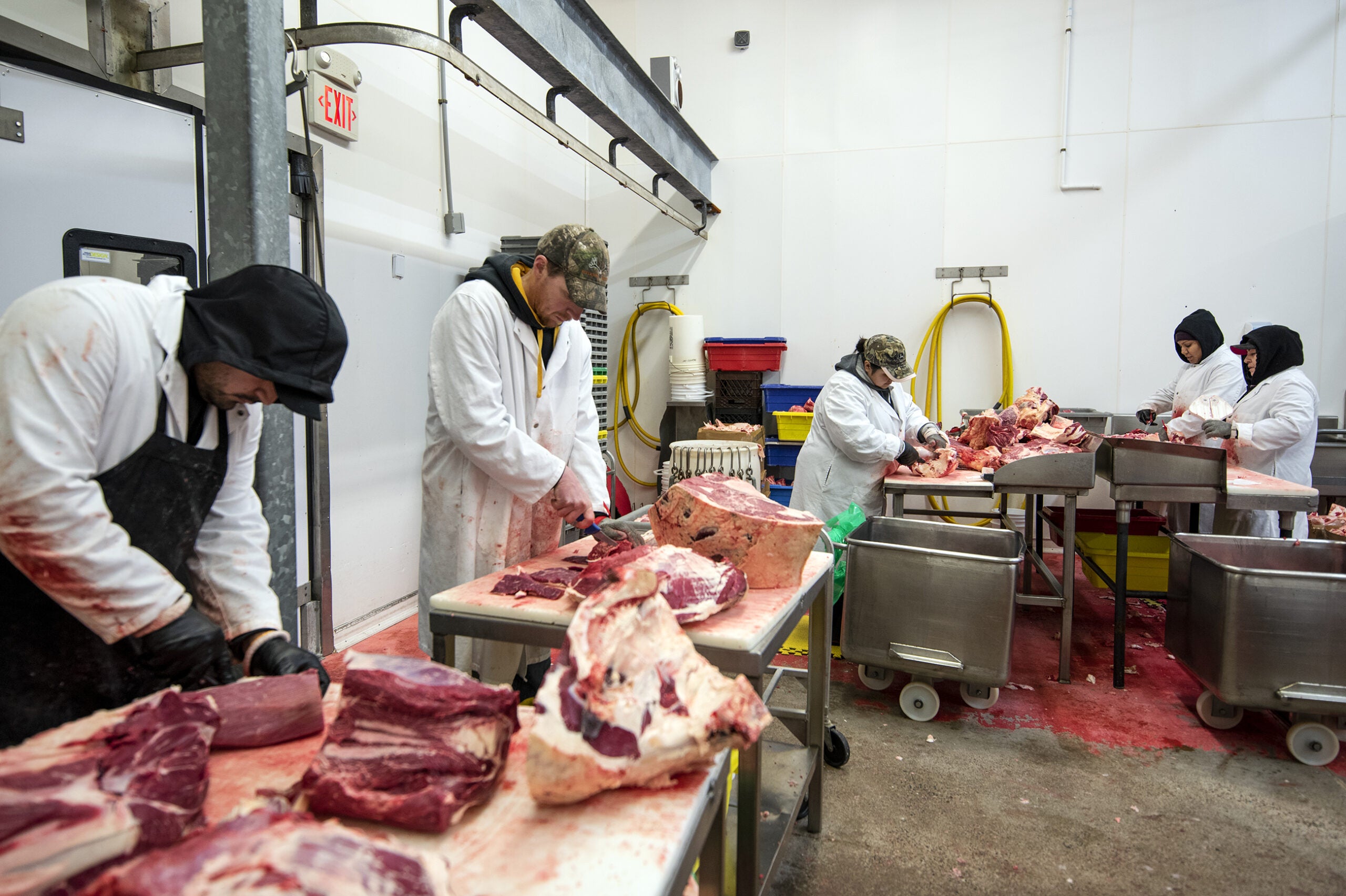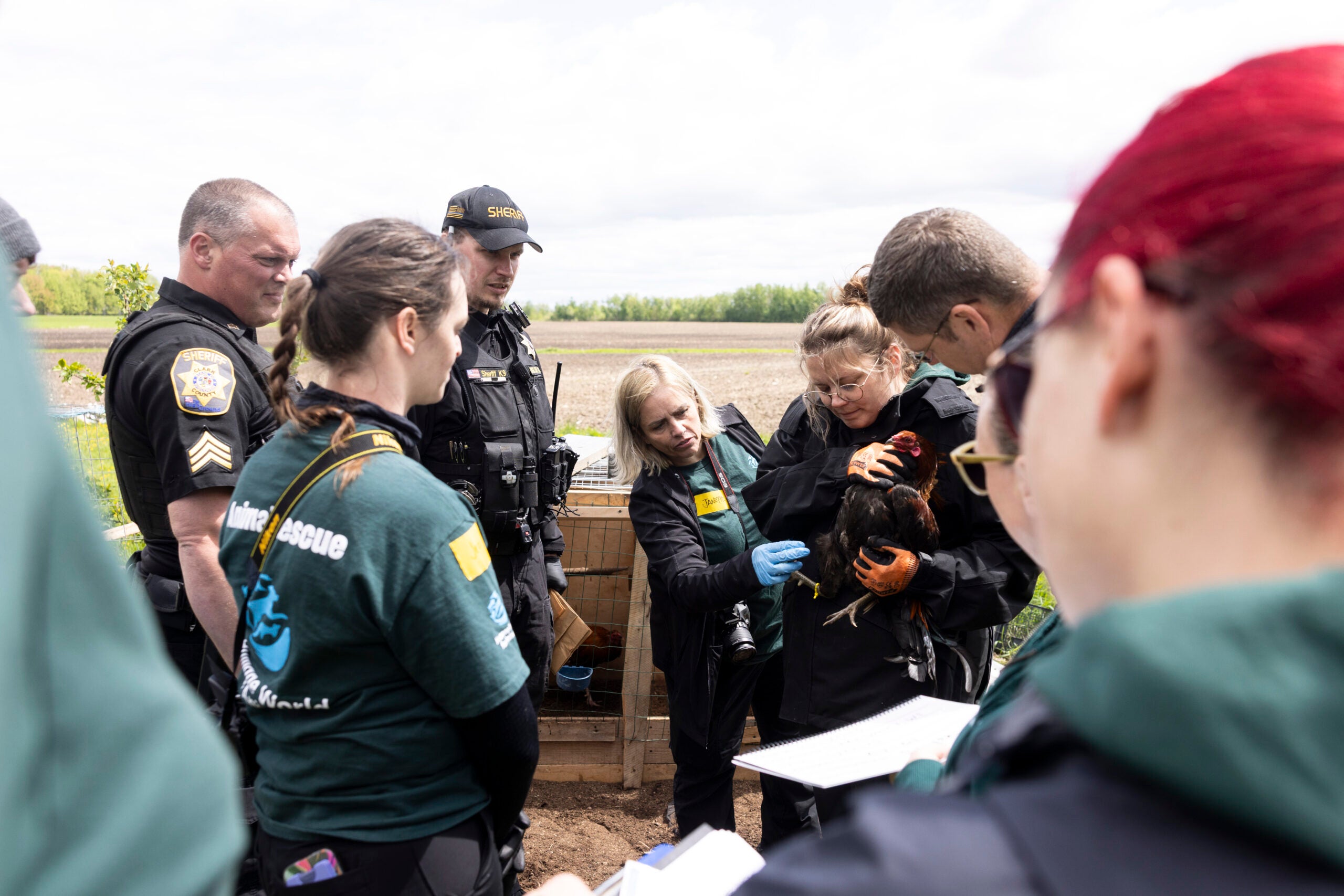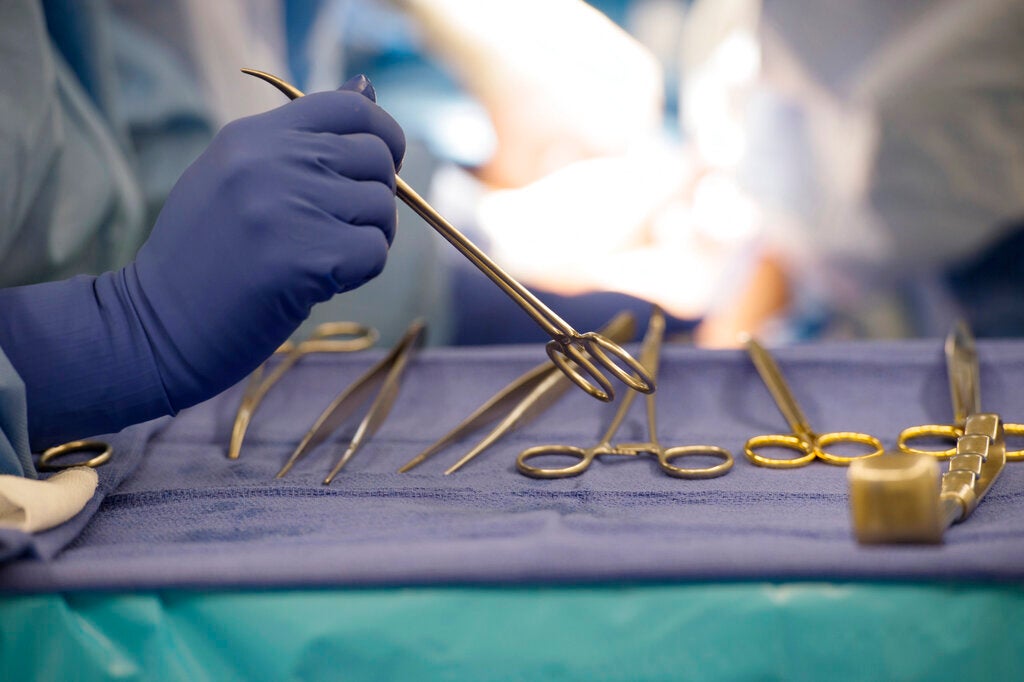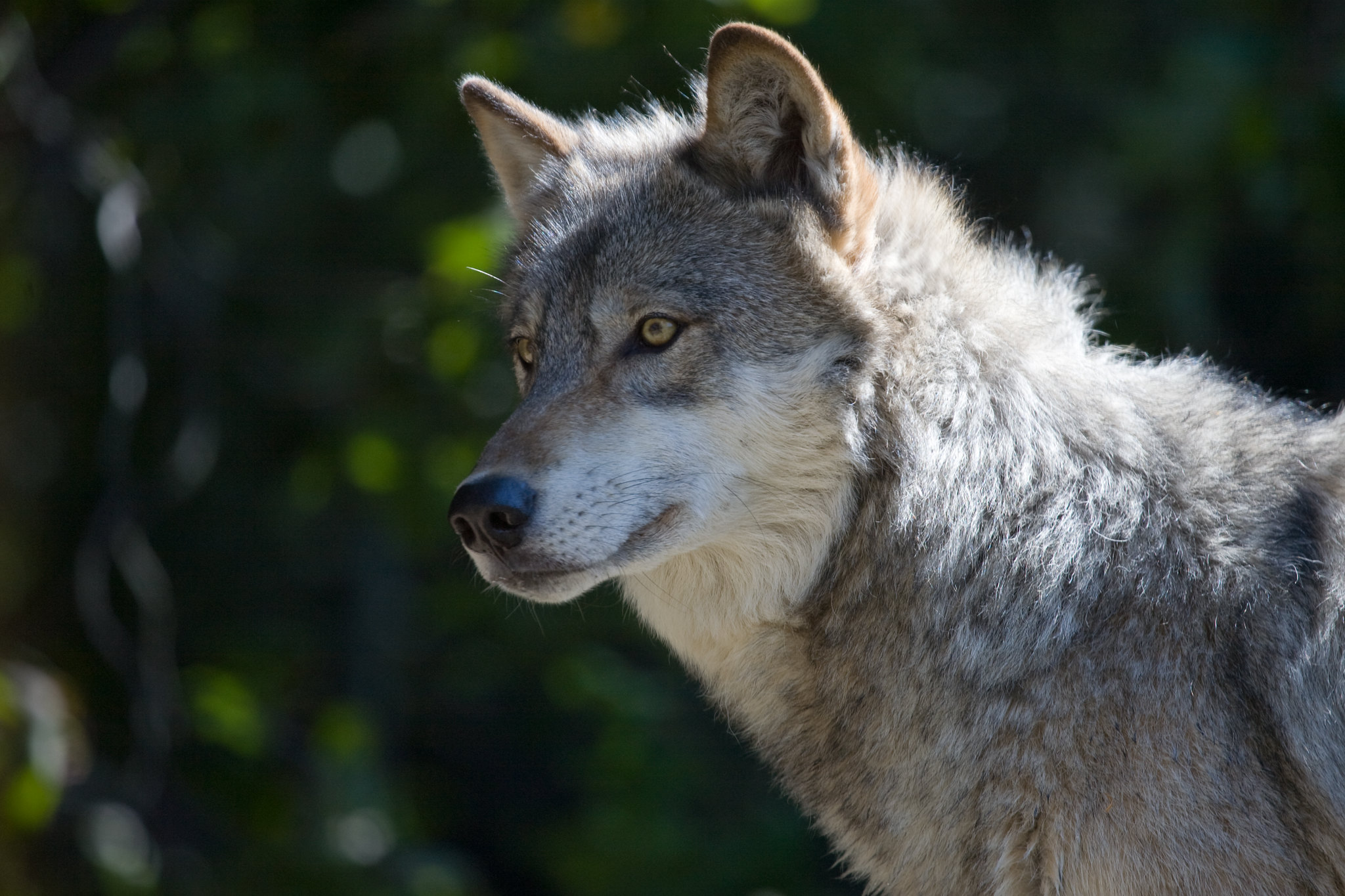An expert at the University of Wisconsin-River Falls hopes a new focus on humane handling of animals at slaughter facilities will help the meat industry build a more sustainable future.
UW-River Falls launched the new Humane Handling Institute at the end of October through funding from the state Department of Agriculture, Trade and Consumer Protection’s Meat Talent Development program. Starting next fall, the program plans to offer five different 2.5-day workshops designed primarily for people already working in the meat industry. The topics focus on everything from the safe transport of animals to the operation and maintenance of equipment.
Kurt Vogel, institute director and associate professor of animal behavior and welfare, said during an interview with Wisconsin Public Radio’s “The Morning Show” that the Animal Welfare Lab at UW-River Falls has spent years tracking humane handling violations reported by federal inspectors at slaughtering facilities. He said they realized that many could be prevented by an increased focus on training workers, which led to the creation of the new humane handling program.
News with a little more humanity
WPR’s “Wisconsin Today” newsletter keeps you connected to the state you love without feeling overwhelmed. No paywall. No agenda. No corporate filter.
“We can train people in an environment that is more conducive to learning than trying to learn on the job in a slaughter establishment where things are moving fast,” Vogel said. “So that’s our primary goal, is we want to make sure that we can provide a resource that helps to protect the welfare of the animals that are entering slaughter facilities because ethically we owe that to them.”
Vogel told “The Morning Show” that this work also protects the physical and mental health of the people doing the work of slaughtering animals.
After transporting an animal to a facility, the first step in the process is to stun the animal using a mechanical tool, CO2 gas or an electric shock. The purpose is to render the animal insensible to pain or distress before slaughtering it.
Vogel said it’s best for the animal if this process happens quickly, but it’s important for workers not to be rushed or sloppy. And when the stunning process goes wrong, it creates a difficult situation.
“As you can imagine, that’s a period of time where the animal can experience substantial suffering,” Vogel said during the interview. “In addition, the person that is doing that job will generally experience a substantial amount of anguish that goes along with that.”
He said making sure workers are well-trained and comfortable with their job is key, as well as encouraging them to have pride in their work so that the job is performed well every time.
“In the long term, this should help to contribute to improving the sustainability of animal agriculture in general because a system is not sustainable that would cause pain and suffering,” he said.
Some continue to call for the end of meat production, citing the impact on the environment and instances of inhumane treatment of animals. The movement has led to a rise in meat alternatives that are gaining traction in the food industry.
Vogel said that whether this shift continues to gain traction is something that has to play out over time.
“We have, here in our country, about 32 million cattle and 132 million pigs that are slaughtered on an annual basis, and that shows that there is a substantial appetite in our society for meat,” he said. “With that in mind, my objective during the time that I’m working is to ensure that as close to none of those animals suffer in that process.”
“There may be a time when we don’t consume meat anymore as a society,” he continued. “I don’t know when that would be, and that’s something that will take a shift in ethics and in general practice in how we choose our foods.”
He said people can also look for products that have an animal welfare certification label, which have standards to ensure the slaughter process is humane.
Heather Oppor is a butcher and a director of Meatsmith Co-op, an organization working to improve access to meat processing for small and medium-size farms in Wisconsin’s Driftless Area. She said her organization is excited about the new workshops and the opportunity for more highly-trained slaughter services in the state.
Oppor said small farms in particular have limited options for harvesting animals because they typically have two to four animals at a time.
“You’re asking small farms to cart their animals 50, 100 miles which puts a lot of undue stress on the animals and it causes more strain on them,” she said.
She said on-farm slaughter often makes the most sense for these operations, but there are only so many mobile slaughter units in operation. In the six county area her co-op serves, there are only three people in operation.
“You really want to make sure that the people that are doing it are well-trained, that they know what they’re doing because again you’re trying to reduce the amount of stress and make sure you’re handling them properly, not only for the animal’s safety and care but also for sanitation and the wholesomeness of the meat,” Oppor said.
She said creating more training opportunities like the one at UW-River Falls will help relieve that bottleneck. Her organization is already planning to send someone to the workshops as they work to set up their own mobile slaughter unit in the future.
Wisconsin Public Radio, © Copyright 2026, Board of Regents of the University of Wisconsin System and Wisconsin Educational Communications Board.




